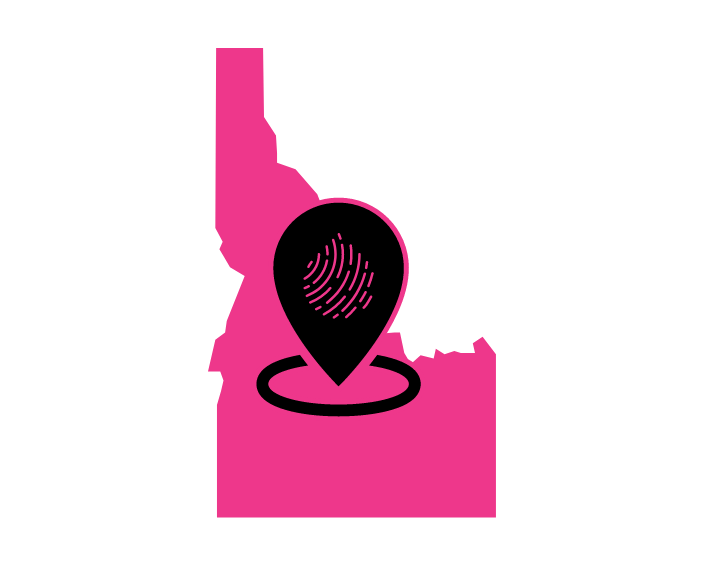Your Cart is Empty
FREE SHIPPING ON ORDERS $70+ | SATISFACTION GUARANTEED
Would it surprise you that a state known for the blandest vegetable of all — the potato — also only goes in for “plain” CBD? By this, we mean CBD with no THC whatsoever.
As a decided anti-cannabis state, Idaho has very restrictive laws. CBD is only legal here if it’s hemp-derived and contains 0.0% THC. Aside from this, the state permits limited medical marijuana usage for a few specific conditions — and this is all highly regulated.
When it comes to CBD in Idaho, you better know what’s what. Here are the big points to be aware of:
• Idaho is one of the US’s least cannabis-friendly states and penalties for illicit possession can be severe.
• Only zero-THC, hemp-derived CBD is legal in Idaho.
• Idaho permits some medical marijuana use, but it’s very restrictive.
• It can be difficult to find CBD locally, so your best option may be online shopping.
• Idaho reserves the right to inspect CBD shipments; so, while you can have hemp CBD with no more than 0.3% THC legally mailed to you, you can still get in trouble for having it.

Suffice it to say that, right now, Idaho does not like cannabis in any of its varieties very much. The state has placed lots of rules and regulations around its growth, processing, transportation, sale, possession, and use. The result is a significant lack of freedom to enjoy CBD and all its benefits.
Take a gander at CBD’s lackluster legislative track record in Idaho:
The Gem State is not putting out the welcome mat for CBD. (Sad face!) As such, your source for CBD products is more limited than many other states. While you may find some Idaho-approved CBD in a vape shop here or a wellness store there, you’re likely going to explore the virtual marketplace. You still have a ton of shopping alternatives, but be sure to purchase from a reputable retailer.
Because CBD is barely legal in Idaho, you probably won’t find CBD items locally — or, at least, not much of a selection. There aren’t many dispensaries; it’s unlikely that your pharmacy, health food co-op, or spa will carry CBD-infused products. If you want a surefire way to purchase CBD goodies, consider going a different route.
Even though CBD itself is questionably-legal in some states, it’s legal to mail hemp-derived CBD oil with 0.0-0.3% THC to every state in the Union. This is because federal law deems compliant CBD as legal in all 50 states.
This may be happy news for folks in Idaho. You can’t get most CBD products at a local store, but you’ve still got options. Thanks internet!
But remember, Idaho’s very strict with CBD — even the hemp kind, even the kind that’s been blessed by the federal government. It’s recommended that you:
That said, you can buy federally-legal CBD (i.e., hemp-derived with 0.0-0.3% THC) and have it shipped to you. BUT, your parcel may be inspected by state officials. If you’re caught with products containing THC, you could face severe legal consequences.
Yes — it’s a confusing gray area of the law. It’s a junction where it’s OK for retailers to sell to you, OK for you to buy it, but not OK for you to physically possess or use it. Buyer beware!
Should you decide to take your hunt for CBD online, you can safely buy high-quality products from Pure Craft. In fact, here are some CBD items that’re popular near you:
Some say knowledge is power. If you’d like to be more CBD powerful, feel free to read up on the legal details of cannabis in your Idaho.
Idaho is an extremely unreceptive state to cannabis Only hemp CBD that’s 100% free of THC — zero, zilch, no THC — is legal in Idaho. The state also has a very limited medical marijuana program that allows for CBD with some THC. Other than this, cannabis — especially marijuana — is illegal and penalties for possession can be steep.
Your best bet for finding high-quality, reliable THC-free CBD products is probably online. Be sure to follow the shopping guidelines above.
We’re not legal professionals or otherwise qualified to offer legal advice. So, while we do our very best to be thorough, up-to-date, and 100% correct, the content above is for informational purposes only. Please also note that the laws surrounding CBD are subject to change. We recommend checking our source(s) to see if the information or legal status have been revised since our content was published.